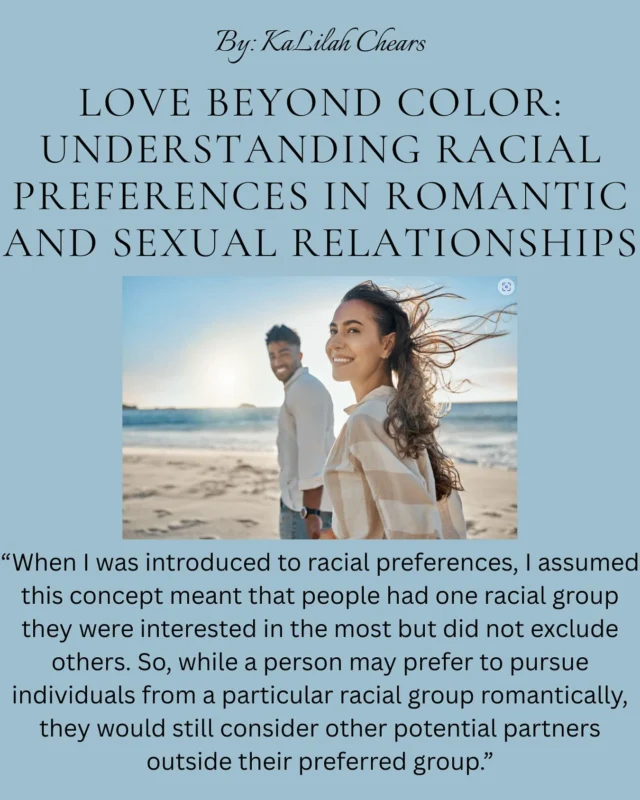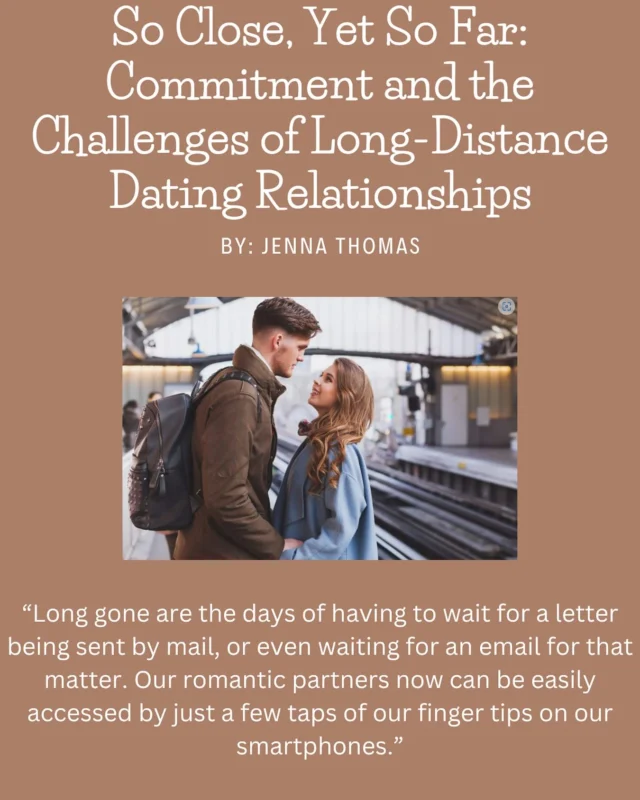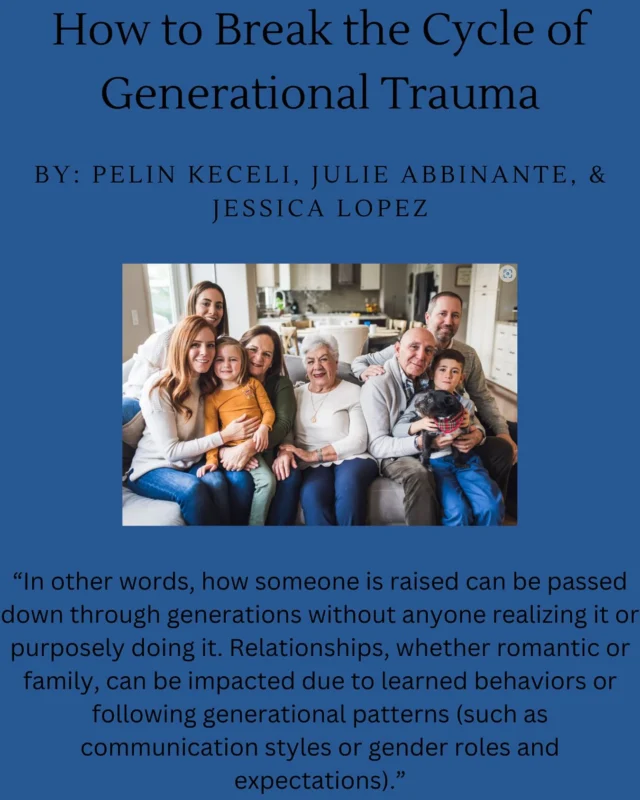There are times when one partner in a relationship wants to leave, but is simply afraid of hurting their partner’s feelings, or scared of what life may be like outside of a now-comfortable relationship. Maybe this is you, or a close friend, but whoever it may be, this can definitely be a difficult situation. On one hand, you know your partner may be deeply committed to you, but on the other hand, you feel as though you are not on the same page. You want your partner to be happy and be with someone they love, but there are reasons you no longer want to stay in the relationship. What are you supposed to do in this situation? According to recent research by Samantha Joel and colleagues, there are two main reasons that people tend to stay in these unsatisfying relationships. First, an individual may feel as though they have put in too much time and effort in to back out. Second, the individual may feel as though their other options outside of the relationship are not as interesting or limited (Joel et al., 2018). If we are in a situation such as this one, how do we address it? And how do we determine what is the right decision for us, our partner, and our relationship as a whole?
Two potential factors that can influence an individual’s decision in regards to staying together or breaking up with their partner are knowing how committed ones partner is, and knowing how stressful it would be for both parties to go through a breakup (Joel et al., 2018). These two concepts may seem simple, but when it comes to long-term relationships, showing effort and affection towards one another can potentially be a struggle that many partners face. With that being said, it’s also important that couples learn to be committed. Relationships require effort, and it’s important to make time to spend with one another before making conclusions about whether or not the relationship is or isn’t meant to be.
One way to understand and conceptualize couple relationships is interdependence theory. The feelings of interdependence increase depending on overall desire, as well as how much time, commitment, and effort is invested into the relationship (Stanley et al., 2010). Clearly, if ones partner isn’t putting as much effort into the relationship like they could, the interdependence level of the relationship would be lower. Communicating with your partner and examining the interdependence of your relationship can give you a good idea as to if the relationship is benefiting the both of you, or if it is really no longer satisfying the two of you. If not, the possibility of making any changes to help fix these issues should also be discussed. Thinking in terms of this theory can let you know if the relationship between the two of you has a high level of interdependence, which is extremely dependent on both yours and your partner’s level of satisfaction in the relationship, as well as their interpretation of the quality of alternatives outside of the relationship (Stanley et al., 2010). Higher levels of interdependence are linked to higher levels of commitment, which can give you an overall picture as to if the level of commitment in your relationship is as high as it may seem.
It’s also extremely important for couples, before considering breaking up, to understand that no relationship will always consist of sunshine and rainbows. In fact, many couples experience fluctuations in their relationship. Just because it seems as though you and your partner are having more disagreements than agreements during a certain period of time, doesn’t necessarily mean you have a bad relationship or that you should consider breaking up. Before making conclusions on your own relationship it’s also important to weigh the options.
Reflect back on your entire relationship. Are there more negatives than positives? You should also examine whether or not the negatives significant. Just because your partners favorite food isn’t the same as yours, doesn’t mean you should end the relationship. Significant negatives could include: Has your partner cheated on you? Hurt you physically or emotionally? Is not being fully honest with you? These are some examples of negatives, or red flags, that one should consider. If you feel as though these significant negatives have made up more of your relationship than the positives, this could serve as an indicator regarding if ending the relationship is the right decision for you. While everyone wants to make their partner in life happy, when it comes to mental and emotional health, you need to be your #1 priority.
Commitment is one of the most important factors when it comes to a strong and satisfying relationships. It is actually normal for fluctuations to occur in romantic relationships. At the end of the day, even though you and your partner may have struggles, understand why you got into that relationship in the first place. Commitment means to stay dedicated to your partner, even when times get tough. Research continues to indicate that married couples tend to be the happiest in regards to relationship quality (Wilcox et al., 2019). Marriage can elevate the commitment in a relationship that each individual has expressed through their vows, promises, and marriage itself. In general, people who are married are going to be more likely to work through issues rather than throwing in the towel because of their ties to one another. While giving up will always be the easy way out, love is not easy, and will always take a lot of perseverance.
Additionally, if you are sitting back thinking to yourself that the only thing holding you back from leaving is not wanting to break your partner’s heart, there are multiple factors to explore. On one hand, there is a possibility you are fooling yourself about how happy you really are in a relationship. According to a recent study conducted by Samantha Joel and Paul Eastwick (2020), many couples interpret present (and future) relationship satisfaction based on their perception of their partner’s commitment. Meaning, there is a possibility that the only reason you have remained in your relationship this long is because you are hopeful that your partner will eventually become as committed as you are to the relationship (see: asymmetrical commitment). What we perceive our partner’s commitment level to be can often times differ greatly from what they are actually feeling. This is why it is extremely important to openly communicate with your partner, and ask them to tell you their honest feelings about your relationship. Do they feel happy? Satisfied? Do they feel there could potentially be better options? What they are truly feeling may surprise you, and could potentially change your thought that the only reason to stay is to not hurt their feelings.
Overall, it’s important to understand that no relationship is perfect. However, an individual should seriously consider breaking the ties if abuse is involved. It’s important that both partners in a relationship understand that there will be things you will not like about your partner, there will be bad days, and there will be times where giving up feels easiest. At the end of the day, each relationship comes back to commitment. If one truly feels like they will have a better experience within another relationship, then that might be the path to take. The best way to deal with a situation such as this one is to communicate with your partner, and reflect with yourself. Be open with your partner about how you are feeling, and explain why you are feeling this way. Additionally, take the time to yourself to really be alone and think back on your relationship without comparing it to anyone else, or only focusing on reasons it would be better to leave. Also, don’t be afraid to remind yourself that relationships do take work, and putting in the work can help change things for the better. Go on a weekly date, take a relationship class, learn to be committed before thinking someone else will fulfill the relationship you want. Sometimes, though hard to recognize, we need to realize that the right relationship might just be right in front of our eyes after all.
References
- For Your Marriage. (2021). Commitment. For Your Marriage.
- Hayes, S. (2018). Reasons to Stay and Reasons to go: Deciding Whether to Continue a Relationship. Decide to Commit.
- Joel, S., Eastwick, P. W., Allison, C. J., Arriaga, X. B., Baker, Z. G., Bar-Kalifa, E., … & Wolf, S. (2020). Machine learning uncovers the most robust self-report predictors of relationship quality across 43 longitudinal couples studies. Proceedings of the National Academy of Sciences, 117(32), 19061-19071.
- Joel, S., Spielmann, S. S., Impett, A. E., & MacDonald, G. (2018). How Interdependent are Stay/Leave Decisions? On Staying in the Relationship for the Sake of the Romantic Partner. Journal of Personality and Social Psychology, 115, 5, 805-824.
- Love is Respect. (2020). Healthy Relationships.
- Lupo, T. (2018). Are Fluctuations in Commitment Normal in Romantic Relationships? Decide to Commit.
- Stanley, M. S., Rhoades, K. G., & Whitton, W. S. (2010). Commitment: Functions, Formations, and the Securing of Romantic Attachment. Journal of Family Theory & Review, 2, 243-257.
- Stanley, S. (2016). Weak and Strong Links: Asymmetrical Commitment in Unmarried Relationships. Institute for Family Studies
- Stoffel, H. (2018). Is it Too Late to Leave? Feeling Stuck in a Relationship With No Future. Decide to Commit.
- Stanley, S. (2020). What a Groundbreaking Study Using 43 Data Sets Reveals About Relationship Satisfaction. Institute for Family Studies.
- Wilcox, B., W., Dew, J., ElHage, A. (2019). Cohabitation Doesn’t Compare: Marriage, Cohabitation, and Relationship Quality. Institute for Family Studies.
Discover more from Decide To Commit
Subscribe to get the latest posts sent to your email.












